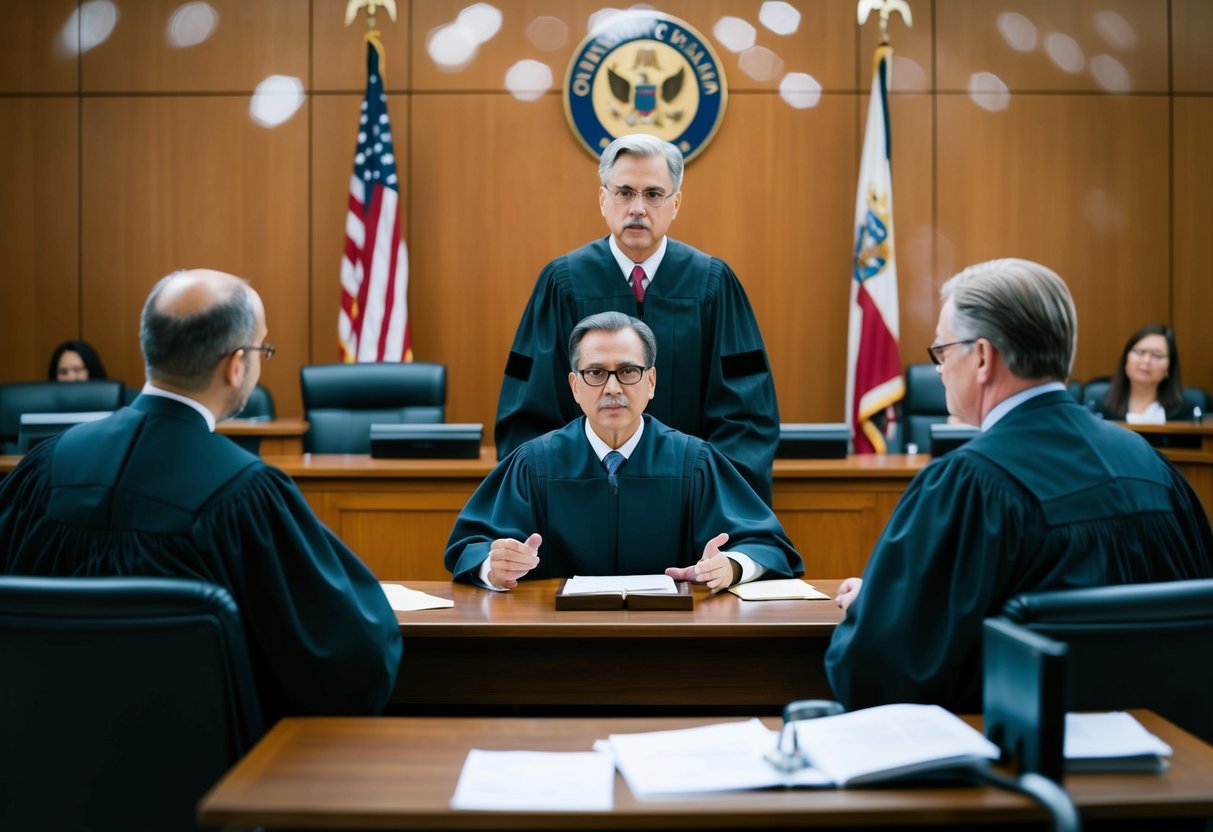Understanding Misdemeanor Offenses in Georgia

Misdemeanor offenses in Georgia are less severe than felonies but still carry penalties. They often result in fines, community service, or short jail time.
Classification and General Penalties
In Georgia, misdemeanors are divided into two categories: misdemeanors and high and aggravated misdemeanors.
Misdemeanors:
- Punishable by up to 12 months in jail.
- Fines up to $1,000.
High and Aggravated Misdemeanors:
- Same jail time but fines up to $5,000.
- May include longer probation periods or more community service.
Common Types of Misdemeanors
Georgia categorizes many offenses as misdemeanors:
- Traffic offenses: Speeding, DUI, and driving without a license.
- Theft: Shoplifting items under $500.
- Public order crimes: Disorderly conduct and public intoxication.
- Minor drug offenses: Possession of small amounts of marijuana.
- Domestic violence: Lesser instances of domestic disputes.
Comparison with Felony Offenses
Felonies in Georgia are much more serious. Misdemeanors have shorter jail times and smaller fines.
Felony penalties:
- Punishable by more than one year in prison.
- Fines often exceed $1,000 and may include restitution to victims.
Felons lose certain rights, like voting and gun ownership, which misdemeanants do not.
Legal Consequences of Misdemeanors

Misdemeanors in Georgia can lead to a range of legal consequences. These can include fines, jail or prison time, probation, and long-term effects on one’s life.
Fines and Incarceration
A person convicted of a misdemeanor may face a fine. The fine amount can vary based on the offense. Typical fines range from $300 to $1,000. Besides fines, the person might face jail time.
Jail sentences for misdemeanors can be up to one year. Sometimes, the court may decide on a short stint in a county jail. For misdemeanors of a high and aggravated nature, jail time can be harsher. This means up to one year in jail and possibly higher fines.
Probation and Alternative Sentencing
Probation is a common outcome for misdemeanor convictions. Probation allows the offender to avoid jail time. Instead, they must follow specific rules set by the court. These rules might include attending counseling or community service.
Alternative sentencing could also involve restitution. This means the offender must pay victims for damages caused. Other times, they may receive a suspended sentence. A suspended sentence means the jail time is on hold as long as the person follows probation rules. If they break these rules, they might have to serve their jail time.
Long-Term Impact on Offenders
A misdemeanor can lead to long-term consequences. A criminal record from a misdemeanor can affect job prospects. Employers may be wary of hiring someone with a criminal record. Also, certain misdemeanors can lead to the loss of driving privileges.
The impact can also extend to housing. People with a criminal record might find it hard to rent an apartment. They may also face challenges in seeking higher education. Scholarships and student loans could be at risk if the school knows about the misdemeanor.
Such consequences highlight how important it is to take misdemeanor charges seriously in the criminal justice system.
Navigating the Legal System
When navigating the legal system for a misdemeanor in Georgia, it’s crucial to understand the process from arrest to trial, the role of legal representation, and the options available through plea bargains and trials. Each step is important and can significantly affect the outcome of the case.
Arrest to Trial Process
After an arrest for a misdemeanor, the individual is taken to the county jail. A police officer files a report, and the case is forwarded to prosecutors. The first court appearance often involves an arraignment, where charges are formally read.
Next, the pre-trial process involves sharing evidence between the defense lawyer and prosecutor. This stage may involve hearings and motions. If the case proceeds to trial, both sides present arguments, call witnesses, and provide evidence. The trial ends with a verdict determining guilt or innocence.
Legal Representation and Defense
A criminal defense attorney plays a crucial role in protecting the individual’s rights. They examine evidence, challenge improper police conduct, and negotiate with prosecutors.
Choosing a skilled defense lawyer can impact the case’s outcome. They may identify flaws in the prosecution’s case or argue for lesser penalties, especially for first-offender or minor traffic offenses. Repeat offenders might face harsher consequences, so strong defense is vital.
Plea Bargains and Trials
Plea bargains can resolve cases without a trial. The defendant agrees to plead guilty to a lesser charge or receive a lighter sentence. This can result in reduced punishments and avoid the uncertainty of a trial.
Trials, however, offer a chance to present a full defense. They can be complex and lengthy. The outcomes range from acquittal to the maximum penalty. Defense attorneys often weigh the strength of the evidence before advising on the best course.




